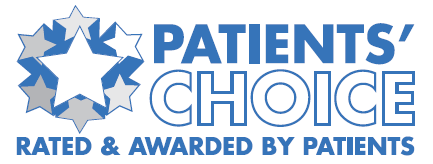A hemorrhoid is a common illness that numerous Americans suffer from. Approximately three out of four adults will have hemorrhoids at some point in their life. If you have anorectal symptoms, such as anal itching, rectal bleeding, anal lumps, and you suspect hemorrhoids , you should always be evaluated with a thorough evaluation by a physician for an accurate diagnosis and treatment plan and to exclude a serious illness.
GREAT NEWS ABOUT HEMORRHOIDS! Infrared coagulation, or IRC, a minimally invasive, non-surgical procedure is available to treat hemorrhoids. This blog is to answer the common questions on the IRC with the FAQs.
What is infra-red coagulation?
Infrared coagulation (IRC) has quickly become the world’s leading office treatment for hemorrhoids and is preferred over other methods because it is fast, well-tolerated, and virtually complication-free. A small probe is placed in the base of the hemorrhoid, and a few bursts of infrared light are applied. The vessels that provide the hemorrhoid with blood are then congealed, and the hemorrhoids shrink away. It may take a few weeks for all the hemorrhoids to shrink completely.
IRC is more effective and fewer infections than sclerotherapy, and may be better tolerated than rubber band ligation in most cases.
How long is the procedure?
Each treatment lasts about a couple of minutes, but the severity of the hemorrhoid as well as your comfort level is considered.
Does it hurt?
The procedure is very tolerable. You’ll probably feel a brief sensation of heat rather than any actual pain. You may feel some discomfort from anoscope. This treatment is available to be done during a regular office visit and does not require any special preparation, anesthesia, or medication or salves.
How should I prepare for the procedure?
In most cases, there is no preparation necessary. The physician will need to examine you to decide on the ideal treatment plan. Try to have a bowel movement 30 minutes before coming into the office.
Who are the Best Candidates for Infrared Coagulation (IRC)?
Infrared coagulation can be used to treat the early stages of hemorrhoids, and it is most effective in grade 1-2 hemorrhoids. If you’re suffering from irritating internal hemorrhoids that continue to cause itching, discomfort, pain, bleeding and other symptoms, and it does not respond to conservative self-management, IRC treatments might be a good solution.
How is Infrared Coagulation Procedure Performed?
Before IRC procedure is performed, Dr. Shu gently inserts the anoscope (a very short, 3-4 inch rigid metal tube), then uses a handheld device that creates an intense beam of infrared light to touch the mucosa above the hemorrhoids, exposing the hemorrhoid tissue to a quick pulse of infrared light. The heat from the infrared light burns 4-5 spots in the targeted area, coagulating the vein above the hemorrhoids.
What is the Recovery Time of Infrared Coagulation Procedure?
After the IRC procedure, you may feel mild discomfort in the anus and the urge to have a bowel movement sometimes. You are able to resume normal everyday activities immediately afterward. Typically, there are no post-treatment effects. However, there may be slight spot bleeding a few days later, but heavy rectal bleeding is extremely rare. Avoid heavy straining, lifting, and aspirin. If you notice significant rectal bleeding, you should call your doctor’s office.
You may use Tylenol as needed and take a warm sitz bath daily to relieve discomfort. A stool softener, fiber, and water will help ease your bowel movement while you heal.
How many visits are required?
This depends on how severe the hemorrhoid problem is, the location of the hemorrhoids, and your individual response to the procedure. Most patients require 4 visits every two weeks.
Will the hemorrhoids come back?
Does it come back?
Recurring hemorrhoids in different locations may occur in some patients. If this happens, infra-red coagulation, rubber band ligation or repeat hemorrhoidectomy may be necessary. Also, a sensible diet, moderate exercise, and proper bowel habits are helpful.
Do you offer other treatment options?
An expert in proctology, Dr. Shu does hundreds of hemorrhoid treatments every year. He offers rubber band ligation and hemorrhoidectomy for the most severe cases if necessary. He also treats other anorectal diseases such as anal fissure, anorectal abscess, anal polyp and anal warts.
Dr. Shu has had extensive experience in treating hemorrhoids with non-surgical IRC treatments in the past two decades, and he has successfully treated more than two thousand hemorrhoids patients with almost ten thousand IRC treatments. Please call 952-922-2151 if you need help to treat your symptomatic hemorrhoids.




